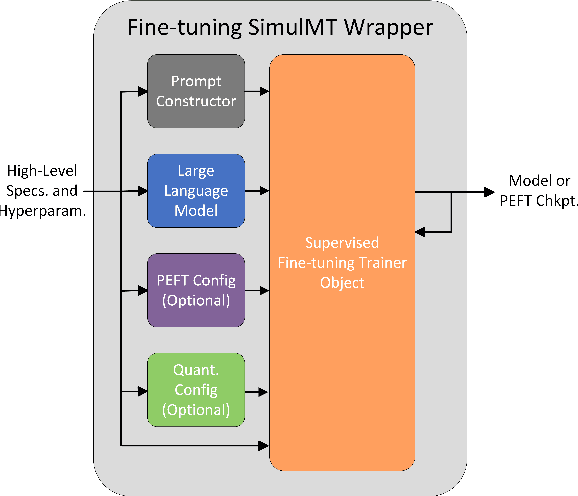Kazi Ahmed Asif Fuad
LLM-Ref: Enhancing Reference Handling in Technical Writing with Large Language Models
Nov 04, 2024Abstract:Large Language Models (LLMs) excel in data synthesis but can be inaccurate in domain-specific tasks, which retrieval-augmented generation (RAG) systems address by leveraging user-provided data. However, RAGs require optimization in both retrieval and generation stages, which can affect output quality. In this paper, we present LLM-Ref, a writing assistant tool that aids researchers in writing articles from multiple source documents with enhanced reference synthesis and handling capabilities. Unlike traditional RAG systems that use chunking and indexing, our tool retrieves and generates content directly from text paragraphs. This method facilitates direct reference extraction from the generated outputs, a feature unique to our tool. Additionally, our tool employs iterative response generation, effectively managing lengthy contexts within the language model's constraints. Compared to baseline RAG-based systems, our approach achieves a $3.25\times$ to $6.26\times$ increase in Ragas score, a comprehensive metric that provides a holistic view of a RAG system's ability to produce accurate, relevant, and contextually appropriate responses. This improvement shows our method enhances the accuracy and contextual relevance of writing assistance tools.
Simul-LLM: A Framework for Exploring High-Quality Simultaneous Translation with Large Language Models
Dec 12, 2023



Abstract:Large language models (LLMs) with billions of parameters and pretrained on massive amounts of data are now capable of near or better than state-of-the-art performance in a variety of downstream natural language processing tasks. Neural machine translation (NMT) is one such task that LLMs have been applied to with great success. However, little research has focused on applying LLMs to the more difficult subset of NMT called simultaneous translation (SimulMT), where translation begins before the entire source context is available to the model. In this paper, we address key challenges facing LLMs fine-tuned for SimulMT, validate classical SimulMT concepts and practices in the context of LLMs, explore adapting LLMs that are fine-tuned for NMT to the task of SimulMT, and introduce Simul-LLM, the first open-source fine-tuning and evaluation pipeline development framework for LLMs focused on SimulMT.
 Add to Chrome
Add to Chrome Add to Firefox
Add to Firefox Add to Edge
Add to Edge